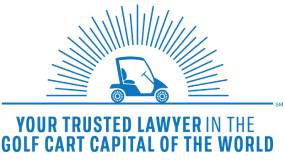Loss of Consciousness
Loss of consciousness, also referred to as syncope or fainting, occurs when the circulatory system is unable to pump enough blood to the brain. Blood carries oxygen, and the brain needs oxygen in order to maintain normal function. While low blood sugar, low blood pressure, dehydration, and a variety of other health conditions can cause a person to lose consciousness; so can traumatic injuries. Swelling in the brain, damage to blood vessels and arteries; and various other conditions both within the brain and in other parts of the body can all lead to loss of consciousness.
Concussions, Seizures and Comas
Loss of consciousness can be both a symptom and a cause of various types of brain injuries. The risk for brain damage and additional complications (including injuries from falling while unconscious) is one of the main concerns with syncope; and, with certain conditions -- such as posttraumatic epilepsy -- having the potential to cause recurring loss of consciousness. Anyone who has lost consciousness in any type of accident should be sure to seek a medical evaluation and diagnosis immediately.
What types of injuries can cause a person to lose consciousness? There are several. Virtually any type of traumatic injury has the potential directly or indirectly to impact the brain’s oxygen supply. In fact, a person does not have to experience head trauma in order to suffer loss of consciousness. Some of the conditions most commonly associated with trauma-induced syncope include:
Steps to Take if You or a Loved One Lost Consciousness Due to an Accident
If you, your spouse or child, or a parent or other senior family member lost consciousness due to a crash, here are some steps you should try to take right away:
- Seek prompt medical attention. Get medical help as soon as possible. Call 911, or have someone who has not been injured drive you to a doctor’s office or hospital.
- Make sure you understand your (or your loved one’s) condition. Different head injuries require different forms of treatment, and individuals with head trauma can experience syncope days, weeks; or even months after being injured. Make sure you know what you need to do in order to avoid any risk of further injury or complications.
- Follow the doctor’s orders. If a doctor is telling you or your loved one to rest or not to drive, there is almost certainly a good reason why. Ignoring sound medical advice after a head injury can be dangerous, and it can also potentially affect your claim for financial compensation.
- Speak with an attorney. All head injuries are serious, and your family’s losses flowing from a traumatic head injury (including future medical expenses and loss of income) could be substantial. To protect your rights, you need to speak with an experienced attorney. At the Babiarz Law Firm, PA, we do not charge attorneys’ fees unless we win, and we will fight on your behalf while you focus on getting healthy and spending time with your family.
Let The Villages Traumatic Brain Injury Lawyer Tim Babiarz Help You Recover
To discuss your rights in a free and confidential consultation, please call (352) 205-7599 or contact our firm online. We have over 20 years’ experience representing accident victims in The Villages, Ocala, Summerfield, Lady Lake, Leesburg, Wildwood and throughout Central Florida.


